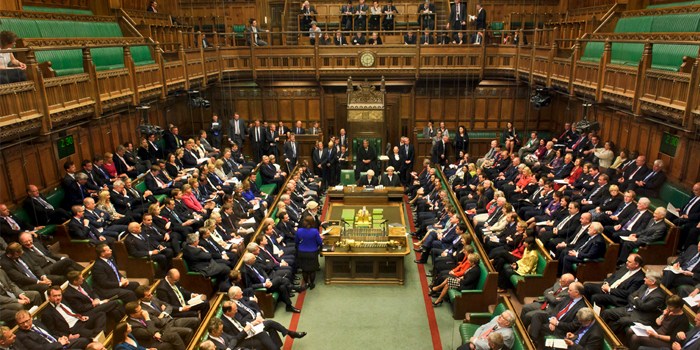MPs in the UK will vote later on whether to ask the EU for permission to delay Brexit beyond the 29 March departure date.
It comes after MPs voted on Wednesday evening to reject a no-deal Brexit under any circumstances.
Prime Minister Theresa May will also make a third attempt to get her EU withdrawal deal through Parliament in the next week – no date has been set.
The EU said there were two ways the UK could leave – with or without a deal, adding it was ready for either outcome.
The UK government said there could be a short delay to Brexit, or a much longer one, depending on whether MPs backed the prime minister’s existing withdrawal deal by 20 March – the day before the next EU summit.
If MPs approve Mrs May’s deal before that summit in Brussels, then the extension would be until 30 June.
However, the PM warned that if the deal – which has twice been rejected by overwhelming majorities – is not approved, a longer extension will be needed, requiring the UK to take part in elections for the European Parliament in May.
“I do not think that would be the right outcome,” said Mrs May. “But the House needs to face up to the consequences of the decisions it has taken.”
In a night of high drama on Wednesday, the Commons first voted on an amendment to reject the UK exiting the EU without a deal under any circumstances, by a margin of four.
That meant the government’s original motion – which had stated that the UK should not leave the EU without a deal on 29 March – was changed at the last minute.
The government had wanted to keep control of the Brexit process, and keep no-deal on the table, so they then ordered Conservative MPs to vote against their own motion.
That tactic failed. Government ministers defied those orders and there were claims Mrs May had lost control of her party.
The updated motion, to reject a no-deal Brexit under any circumstances, was passed by 321 to 278, a majority of 43.
Thirteen government ministers – including Work and Pensions Secretary Amber Rudd, Business Secretary Greg Clark, Justice Secretary David Gauke and Scottish Secretary David Mundell – defied the government whips by abstaining in the vote.
Work and pensions minister Sarah Newton voted against the orders of the whips and has now resigned.
Mr Mundell said he backed the PM’s deal and had always made clear his opposition to a no-deal Brexit.
However, Wednesday’s no-deal vote is not binding – under current law the UK could still leave without a deal on 29 March, unless an extension is agreed with the EU.
Source: BBC


Comments are closed.